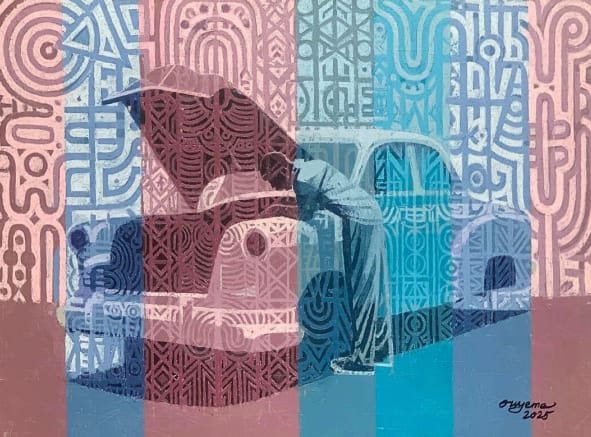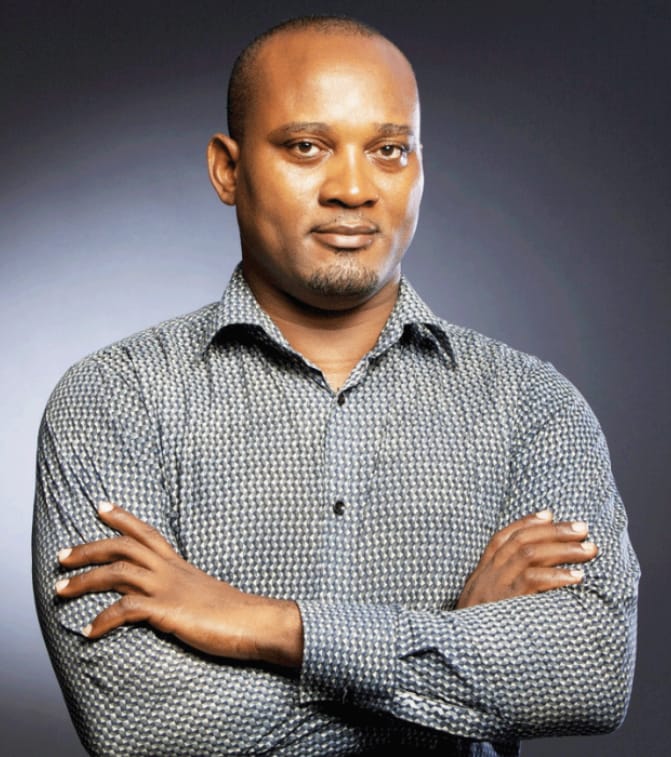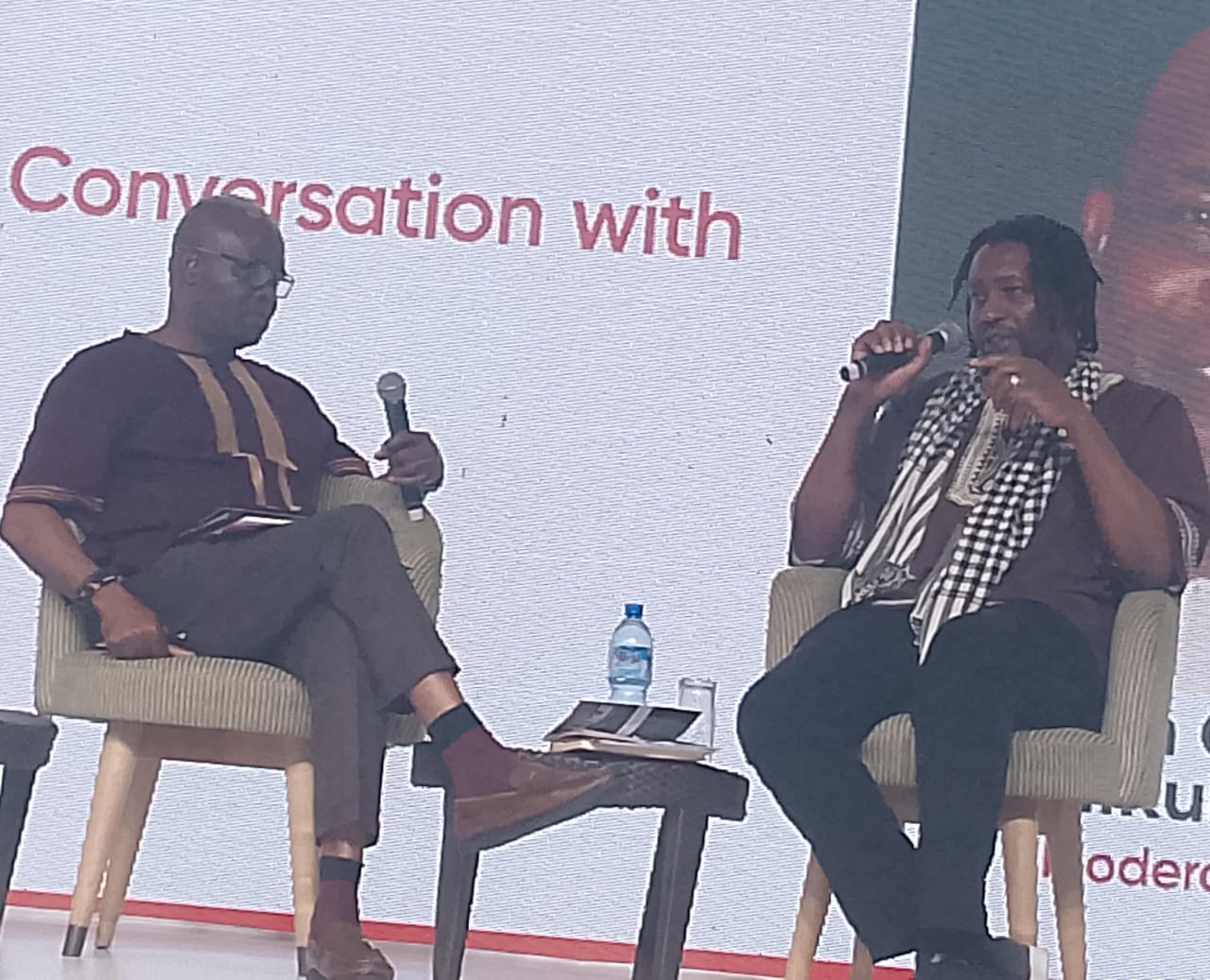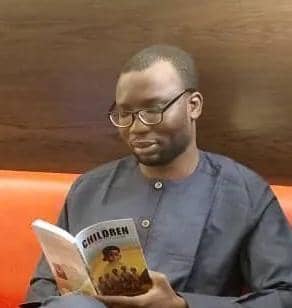Offoedu-Okeke interrogates power, freedom, politics in ‘Time of Redeemer’ exhibition

By Godwin Okondo
ARTIST and architect, Onyema Offoedu-Okeke, brought together art, philosophy, and social reflection in his solo exhibition titled ‘Time of Redeemer’, which opened on October 1, 2025, at LP PRIVE in Ikoyi, Lagos. The exhibition, which coincided with Nigeria’s Independence day, is a striking meditation on power, leadership, resilience, and the enduring spirit of the Nigerian people.
Speaking about the works, Offoedu-Okeke described ‘Time of Redeemer’ as a reflection on Nigeria’s cyclical struggles for transformation — a commentary on the people’s continuous hope for capable leadership and the persistent disappointment that follows.
“Over the decades, Nigeria has been torn apart in hysteria for the emergence of a capable leader,” he said. “Each time, we are overjoyed, but it still ends the same. The arrival of each ‘redeemer’ comes with colors of hope, grandeur, and an explosion of joy, but soon enough, the euphoria fades.”
At the heart of the exhibition is ‘The Trial of Oligarchy’ series, a powerful metaphor that juxtaposes luxury and decay — a Rolls Royce driving through a flooded street. For Offoedu-Okeke, it mirrors the contradictions of governance in Nigeria, when he said, “The vehicles are more expensive than the ground they’re supposed to stand on. It’s about how the elite can account for their exclusive estates, but not the basic infrastructure that connects ordinary people to them.
“This idea finds a deeper, almost poetic expansion. The Rolls Royce automobile brand figuratively conveys visual power condensed from instances of socio-political privilege, fiscal might, and the ultimate icon of class distinction. In the post-period of social revolutions staged by the masses, the roads and rules of political engagement lie beneath pools and floods of manuscripts — overt and subtle scriptures that scream in protest against tyranny by the elite class.
“Yet, as if undaunted by subaltern resistance, the oligarchs plow their controlling instruments through the dense heaps of political placards, rhetoric, and subversive postures.”

Onyema Offoedu-Okeke
Offoedu-Okeke’s metaphor of the Rolls Royce, obscured yet never erased, is a visual testament to how entrenched systems of privilege persist despite resistance. “No matter how much you try to block or erase them, they remain,” he said. “That’s the irony — the more you try to etch them out of history, the stronger they appear. Like the colonial elite, they are still in charge of the narrative.”
The exhibition continues this dialogue between power and people in ‘Technocracy’, a piece founded on the image of a mechanic’s workshop — skill sets and tools forming the stage where a skilled engineer commands centre-stage in the work-related theatre of industrial production, sales, and maintenance. Hypothetically referenced in matters of governance, the mechanic’s posture visualizes what it means when skilled persons occupy the driver’s seat of innovation and progress. “It’s the regime of the mechanic,” Offoedu-Okeke explained. “We keep repairing the same old system — the colonial mindset — without innovation. The same people who know how to fix it are still the ones maintaining the status quo.”
In ‘Locomotive Ideation’, the artist’s allegory of movement and survival takes on a vivid and poignant turn. A young boy balances a functional bicycle on his head — a metaphor for Nigeria’s migratory aspirations, loosely called “japa.” The image suggests both mobility and paradox: the burden of carrying what ought to carry you. It evokes the political audacity of the labour class, the educational quest of the common man, and the ambitious leap of a petty trader in search of better opportunities. “It’s the irony of carrying what ought to be carrying you,” Offoedu-Okeke said. “Despite constraints, Nigerians find ways to maneuver, to keep moving — even when nailed by political realities.”
Transportation, for the artist, is a recurring metaphor for life, resilience, and migration. He connects it to Nigeria’s diaspora experience, where citizens continually seek new “spaces of living. Being able to get away from the original point to a new point of reference is key. When you speak about transportation, the possibilities are limitless.”
Colour and music also play a significant role in the exhibition’s visual rhythm. Drawing from his Eastern Nigerian background, Offoedu-Okeke likens his use of colour to the harmonics of juju, apala, and highlife music. “Even when the narrative is saddening, the colours offer an alternative view,” he said. “We find laughter in everything. There’s a string of music, a rhythm of life that runs through it.”
In works such as ‘Sleepless’ and ‘Free Your Mind’, the artist turns inward to examine the psychic dimensions of the Nigerian condition. “’Sleepless’ is about the absence of comfort — where there’s no ground to negotiate for rest,” he said. “’Free Your Mind’ is a provocation. Our problems are in the mind because we let leadership get away with it. Your liberty is in your mind — that’s the crucible of creativity.”
Offoedu-Okeke’s ‘Constitutional Update’ is another compelling piece that delves into the foundations of national identity. The work portrays citizens dutifully searching legislative literature as though their lives depend on it, their sociopolitical fate coursing through green and red hues — a visual interplay that embodies the organism, life, and reality of bona fide citizens. “People are reading and researching the fate of Nigeria through the constitution,” he said. “There are loopholes and embedded truths we don’t even know about.”
For Offoedu-Okeke, art is a platform for civic conversation and national healing. “With whatever expertise you’ve honed over time, you should deploy it for the discussion. It’s not only in newspapers that we must scream at each other. Fela did a good job of harnessing his art for change. We must do the same.”
Ultimately, ‘Time of Redeemer’ serves as both a mirror and a call to action. “If you’re talking about leadership, you must also talk about the led,” Offoedu-Okeke said. “October 1 should be the day of the people, not just the leadership. The followers are the foundation of any structure. Without them, nothing stands.”




